- À bout de souffle (1960) [France]
- Turks fruit (1973) [Netherlands]
- Como agua para chocolate (1992) [Mexico]
- El Mariachi (1992) [Mexico and USA]
- Letyat zhuravli (1957) [Soviet Union]
- C'est arrivé près de chez vous (1992) [Belgium]
- Dip huet seung hung (1989) [Hong Kong]
- Das Boot (1981) [West Germany]
- Plein soleil (1960) [France and Italy]
- Les diaboliques (1955) [France]
- Il postino (1994) [Italy, France, and Belgium]
- Le violon rouge (1998) [Canada, Italy, and United Kingdom]
- Yin shi nan nu (1994) [Taiwan and USA]
- Les quatre cents coups (1959) [France]
- La vita è bella (1997) [Italy]
- Das Cabinet des Dr. Caligari (1920) [Germany]
- Le samouraï (1967) [France and Italy]
- Spoorloos (1988) [Netherlands and France]
- Novecento (1976) [Italy, France, and West Germany]
- Mafioso (1962) [Italy]
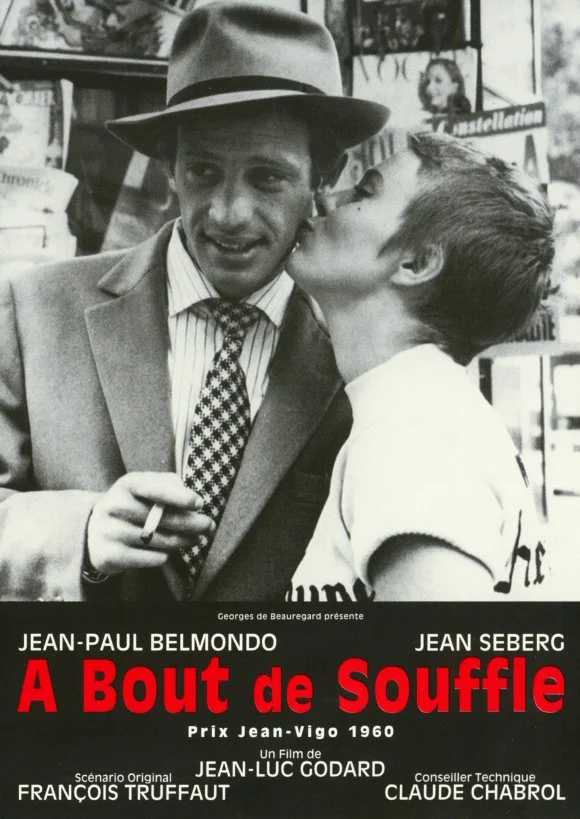 One of the greatest films in French cinema, À bout de souffle immortalized Jean-Paul Belmondo and Jean
Seberg. The jump cuts are famous and many classic scenes are seemingly improvisational, but there's a
James Dean quality that's exercised by the leading stars: infinite flexibility. It doesn't happen much in films.
One of the greatest films in French cinema, À bout de souffle immortalized Jean-Paul Belmondo and Jean
Seberg. The jump cuts are famous and many classic scenes are seemingly improvisational, but there's a
James Dean quality that's exercised by the leading stars: infinite flexibility. It doesn't happen much in films.
 Yep, this is Rutger Hauer's best film of all time, and unbelievably, it's the first of his career. Known as
Turkish Delight in the Netherlands, Turks fruit is brilliantly made that's À bout de souffle,
9½ Weeks, and Love Story all rolled into one. I've never seen two thespians be so spontaneous
like Rutger Hauer and Monique van de Ven. Their characters live their lives to the fullest in the most
brazen manner.
Yep, this is Rutger Hauer's best film of all time, and unbelievably, it's the first of his career. Known as
Turkish Delight in the Netherlands, Turks fruit is brilliantly made that's À bout de souffle,
9½ Weeks, and Love Story all rolled into one. I've never seen two thespians be so spontaneous
like Rutger Hauer and Monique van de Ven. Their characters live their lives to the fullest in the most
brazen manner.
 Sensually unusual, mysterious, and romantic, Como agua para chocolate, which is better known as
Like Water for Chocolate, has one of the best cinematography ever. It's a magical film. What a brilliant
direction by Alfonso Arau. Lumi Cavazos is perfect.
Sensually unusual, mysterious, and romantic, Como agua para chocolate, which is better known as
Like Water for Chocolate, has one of the best cinematography ever. It's a magical film. What a brilliant
direction by Alfonso Arau. Lumi Cavazos is perfect.
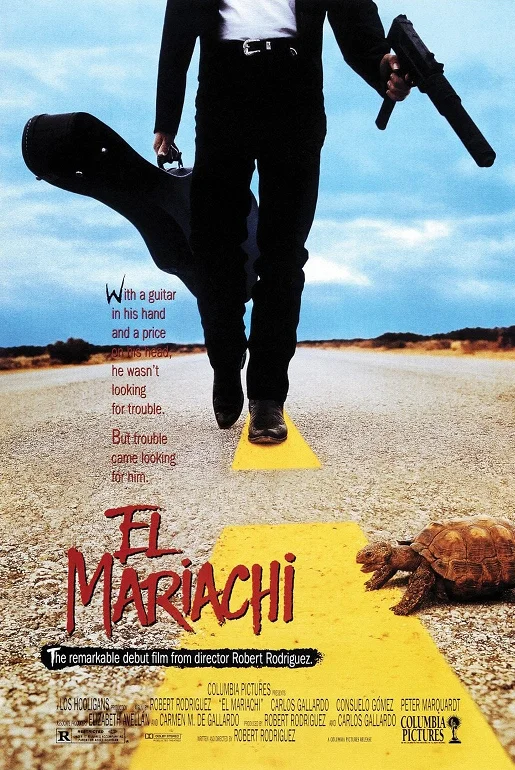 El Mariachi is a stunner of a picture that's set apart from the others through its avant-garde camera
work. What's also nice is the romantic tragedy as it suddenly happens at the end. Adding a lot of flavor to
the film is the Mexican grittiness. The overall result is the hard-to-capture foreign quality that's more poetic
than anything else.
El Mariachi is a stunner of a picture that's set apart from the others through its avant-garde camera
work. What's also nice is the romantic tragedy as it suddenly happens at the end. Adding a lot of flavor to
the film is the Mexican grittiness. The overall result is the hard-to-capture foreign quality that's more poetic
than anything else.
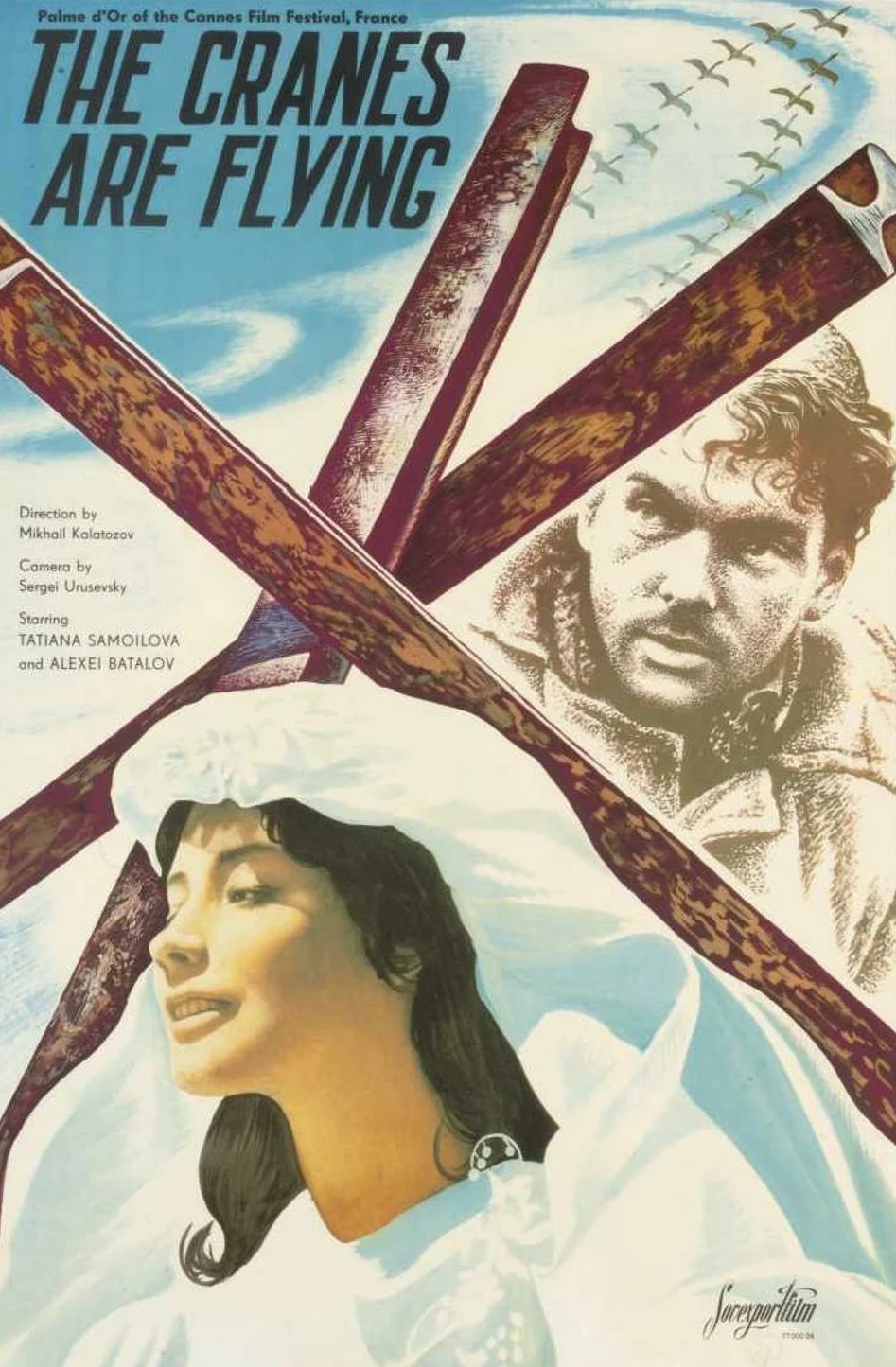 There's no doubt that Russia had its own Audrey Hepburn, and her name was Tatiana Samoilova. Her most famous
performance is given in Letyat zhuravli, otherwise known as The Cranes Are Flying. Highly romantic,
it's one of the prettiest pictures made with unique shots. Whenever Tatiana appears, she enhances the visually
striking black-and-white cinematography even more.
There's no doubt that Russia had its own Audrey Hepburn, and her name was Tatiana Samoilova. Her most famous
performance is given in Letyat zhuravli, otherwise known as The Cranes Are Flying. Highly romantic,
it's one of the prettiest pictures made with unique shots. Whenever Tatiana appears, she enhances the visually
striking black-and-white cinematography even more.
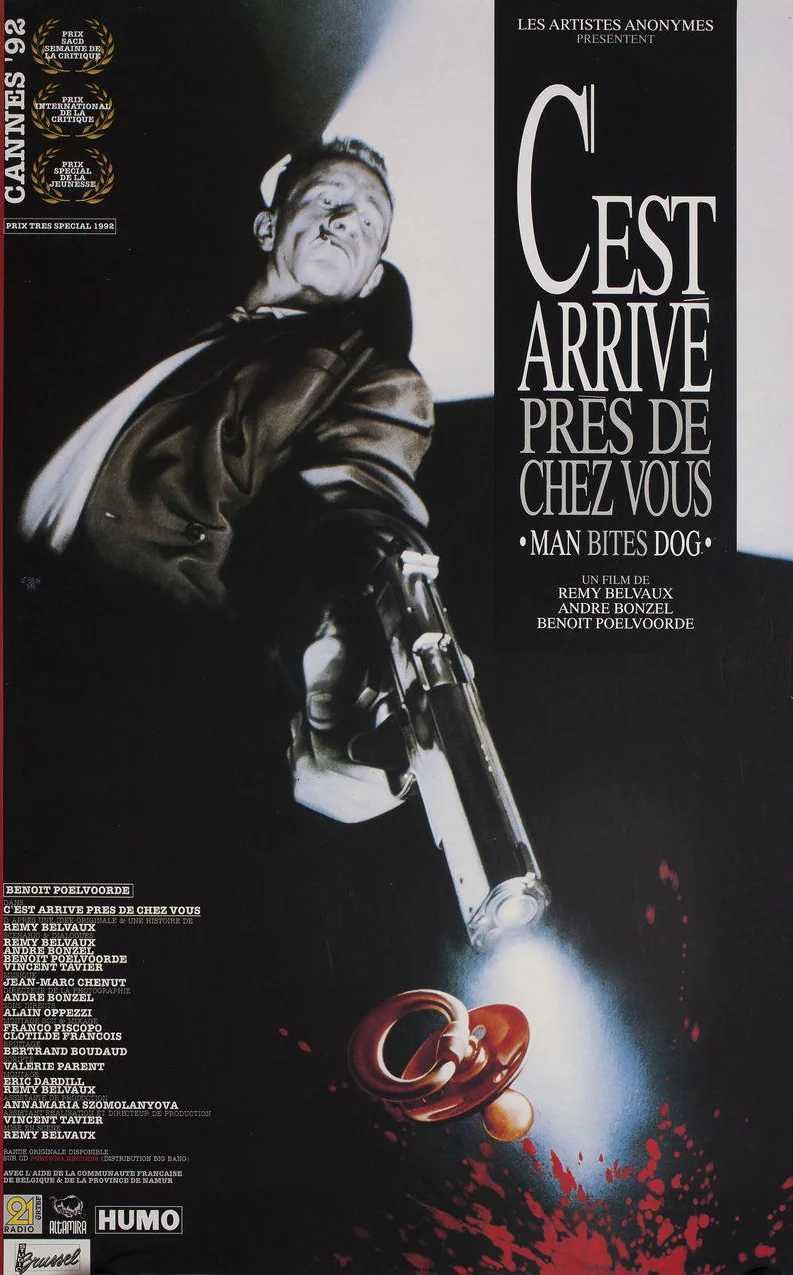 Thanks to Benoît Poelvoorde's arresting Oscar-worthy performance, C'est arrivé près de chez vous
(Man Bites Dog) is one of the most compelling movies made. A one-man tour de force show, he can't be more
charming, likeable, and manipulative. Endlessly talkative, Benoît's character is also knowledgeable,
philosophical, and worldly in many areas through situational analysis.
Thanks to Benoît Poelvoorde's arresting Oscar-worthy performance, C'est arrivé près de chez vous
(Man Bites Dog) is one of the most compelling movies made. A one-man tour de force show, he can't be more
charming, likeable, and manipulative. Endlessly talkative, Benoît's character is also knowledgeable,
philosophical, and worldly in many areas through situational analysis.
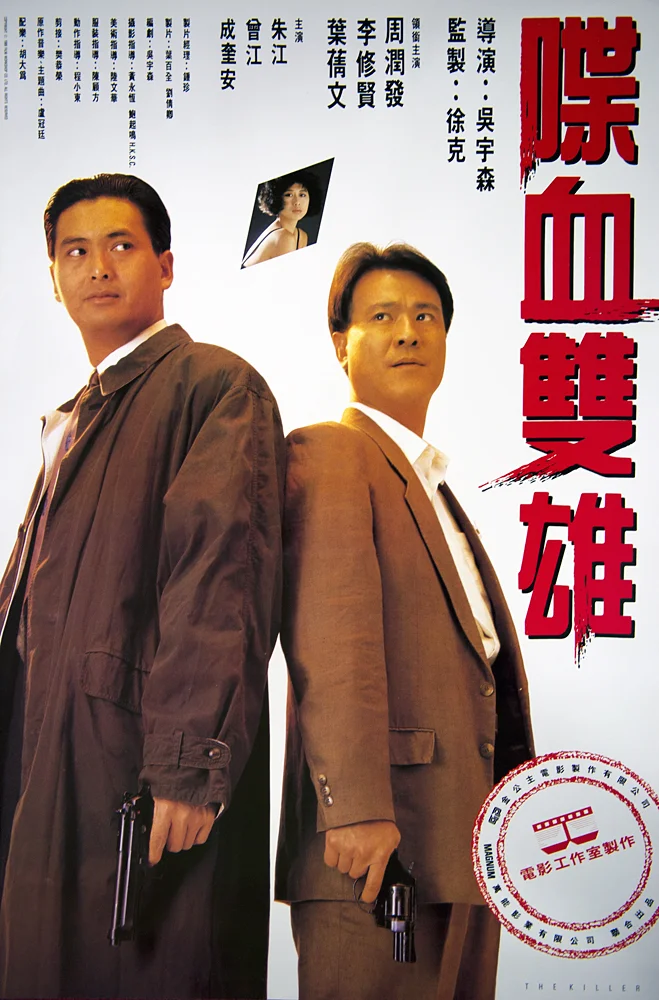 Dip huet seung hung, translated as The Killer in English, is arguably one of the most influential
movies of all time, making John Woo famous. It has the best editing ever which is the chief reason why people
should see this Hong Kong masterpiece to feel its poetic power which is relentless at a scorching pace.
Dip huet seung hung, translated as The Killer in English, is arguably one of the most influential
movies of all time, making John Woo famous. It has the best editing ever which is the chief reason why people
should see this Hong Kong masterpiece to feel its poetic power which is relentless at a scorching pace.
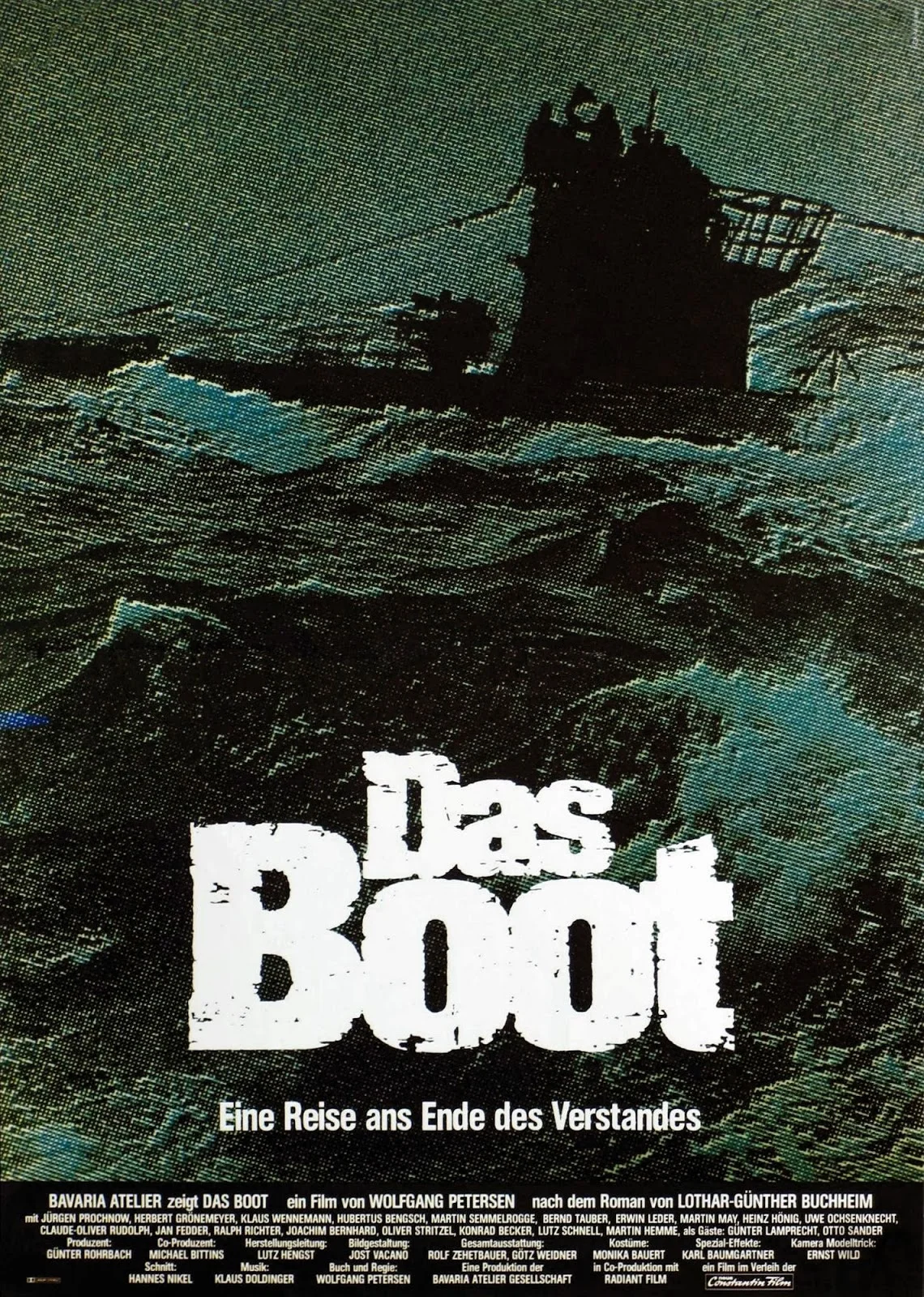 German for The Boat, Das Boot is an intense action-adventure submarine picture that's unlike
anything. This one is about exploring how far a man can go. Also, it's about the reality of survival in naval
warfare, something that Charles Darwin would succintly call: "The survival of the fittest." The ending is
unforgettable as well.
German for The Boat, Das Boot is an intense action-adventure submarine picture that's unlike
anything. This one is about exploring how far a man can go. Also, it's about the reality of survival in naval
warfare, something that Charles Darwin would succintly call: "The survival of the fittest." The ending is
unforgettable as well.
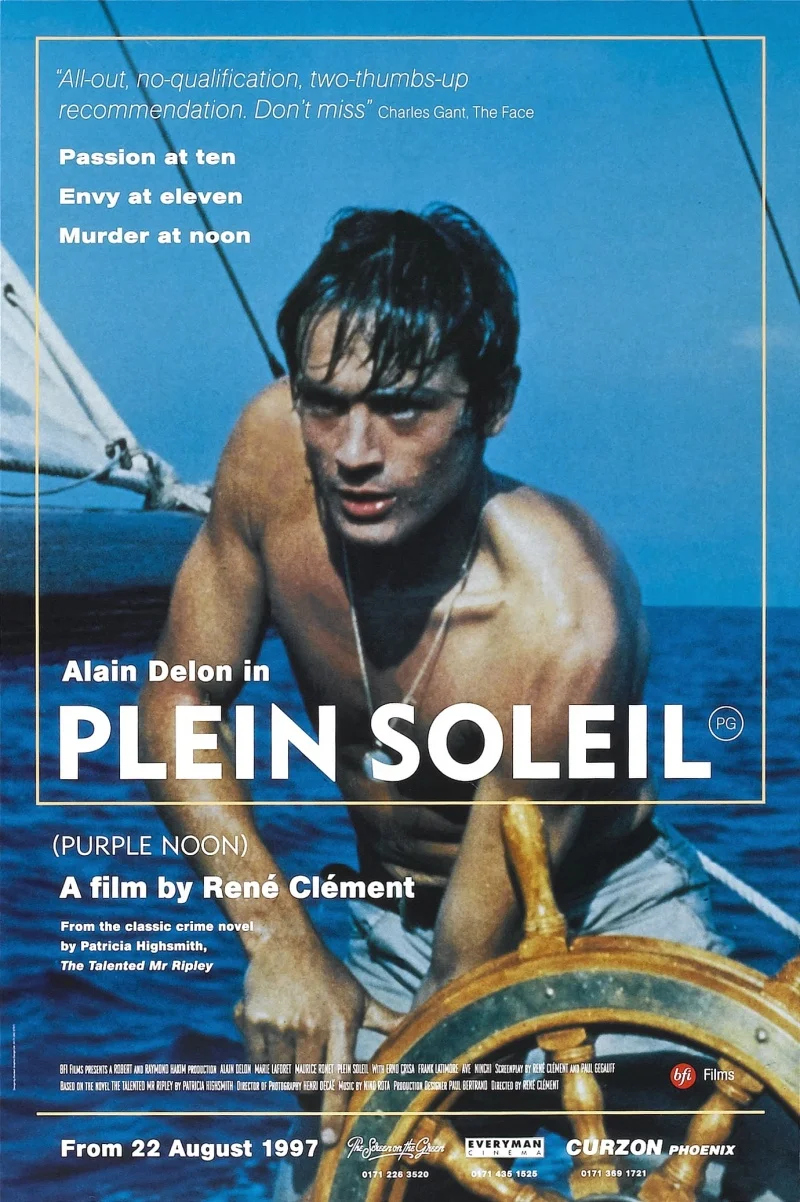 Perfect and sublime, Alain Delon is all that and more in Plein soleil (Purple Noon), giving one
of the finest performances of his career. I have to love the exquisite photography of Italy: land and water.
Complementing it is the beauty of three principal stars: Alain Delon, Maurice Ronet, and Marie Laforêt. They
all have the vibe and are sumptuous-looking creatures.
Perfect and sublime, Alain Delon is all that and more in Plein soleil (Purple Noon), giving one
of the finest performances of his career. I have to love the exquisite photography of Italy: land and water.
Complementing it is the beauty of three principal stars: Alain Delon, Maurice Ronet, and Marie Laforêt. They
all have the vibe and are sumptuous-looking creatures.
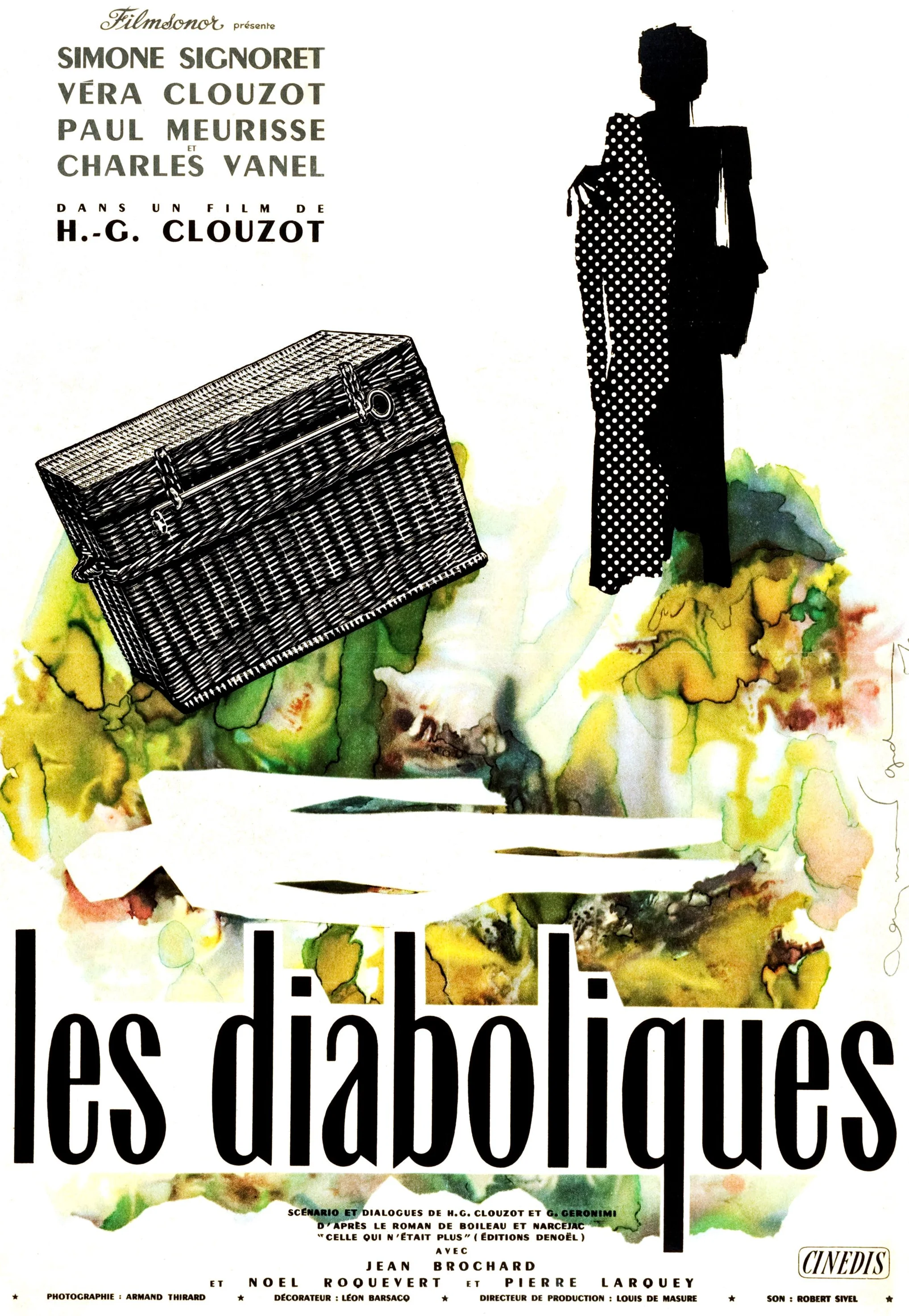 Henri-Georges Clouzot and Alfred Hitchcock were in a race to buy the film rights to a novel called
Celle qui n'était plus by Pierre Boileau and Thomas Narcejac, and the former emerged as the winner.
As a result, he directed the award-winning French thriller that became Les diaboliques, aka
The Devils, making the Master of Suspense envious, but it did have an enormous influence on Psycho.
Henri-Georges Clouzot and Alfred Hitchcock were in a race to buy the film rights to a novel called
Celle qui n'était plus by Pierre Boileau and Thomas Narcejac, and the former emerged as the winner.
As a result, he directed the award-winning French thriller that became Les diaboliques, aka
The Devils, making the Master of Suspense envious, but it did have an enormous influence on Psycho.
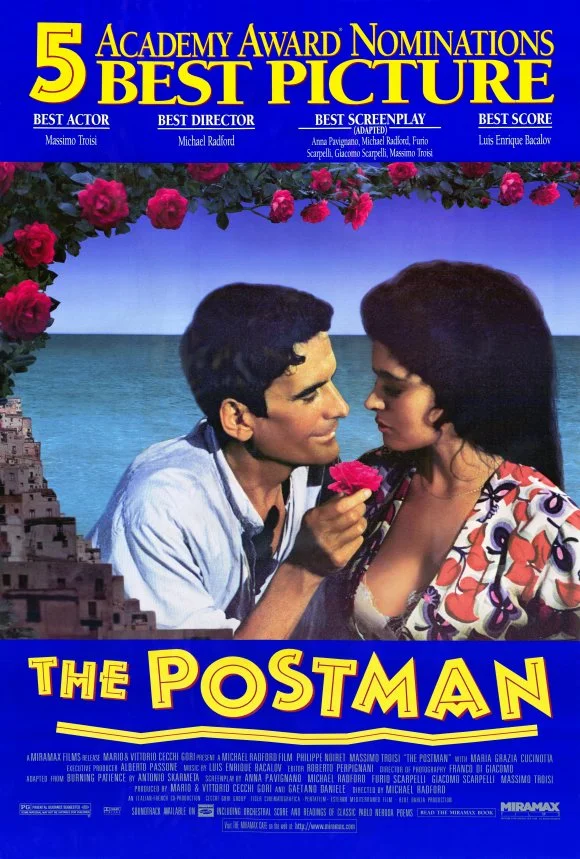 What the romantic movie (aka The Postman) is about is a simple friendship between a famous poet and a
sycophant. Perhaps it doesn't mean much to the former but means the world to the latter. Massimo Troisi
postponed heart surgery in order to complete the film, and then one day after the end of principal photography,
he died of a heart attack.
What the romantic movie (aka The Postman) is about is a simple friendship between a famous poet and a
sycophant. Perhaps it doesn't mean much to the former but means the world to the latter. Massimo Troisi
postponed heart surgery in order to complete the film, and then one day after the end of principal photography,
he died of a heart attack.
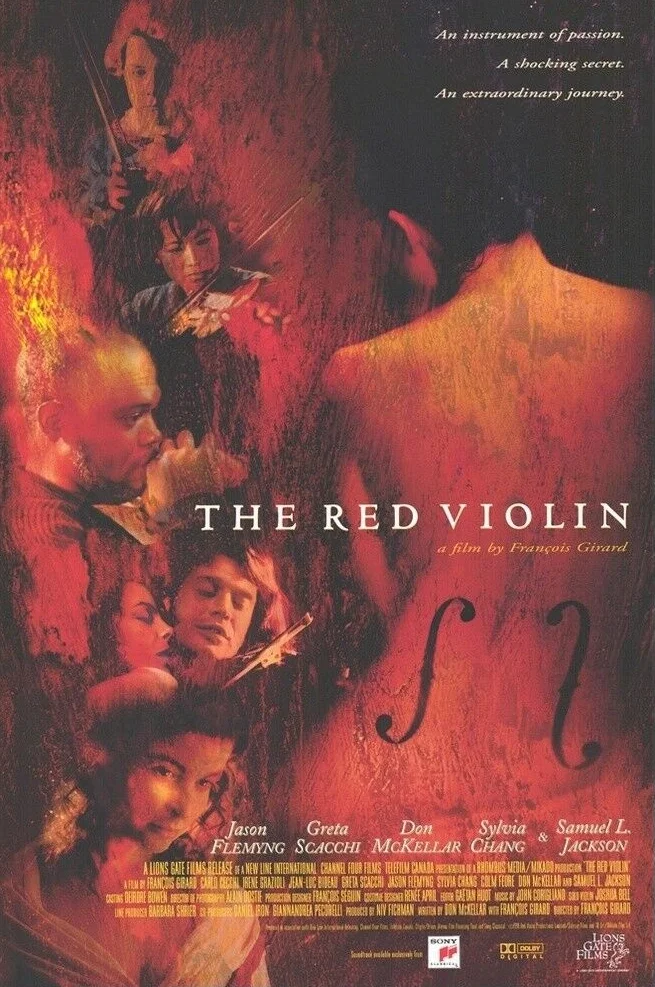 Le violon rouge (The Red Violin) features a fictional history of the red Bussotti violin that was
later revealed to be varnished with the blood of a violin-maker's wife who passed away during labor and saw
itself exchanged by various owners across many continents over four centuries as told in five different vignettes
through six different languages. It's fascinating stuff.
Le violon rouge (The Red Violin) features a fictional history of the red Bussotti violin that was
later revealed to be varnished with the blood of a violin-maker's wife who passed away during labor and saw
itself exchanged by various owners across many continents over four centuries as told in five different vignettes
through six different languages. It's fascinating stuff.
 Shot on location in Taipei of Taiwan, Ang Lee proves in Yin shi nan nu, which is better known as
Eat Drink Man Woman, why he's an excellent director. It's one of the most interesting movies made
despite the marathon of cooked animals. Great performances are rendered by everybody.
Shot on location in Taipei of Taiwan, Ang Lee proves in Yin shi nan nu, which is better known as
Eat Drink Man Woman, why he's an excellent director. It's one of the most interesting movies made
despite the marathon of cooked animals. Great performances are rendered by everybody.
 A famous picture of the French New Wave, Les quatre cents coups, which is better known as
The 400 Blows, is an interesting tale about the life of a typical juvenile delinquent. François
Truffaut's masterly direction results in superb performances, especially from Jean-Pierre Léaud who
plays Antoine Doinel.
A famous picture of the French New Wave, Les quatre cents coups, which is better known as
The 400 Blows, is an interesting tale about the life of a typical juvenile delinquent. François
Truffaut's masterly direction results in superb performances, especially from Jean-Pierre Léaud who
plays Antoine Doinel.
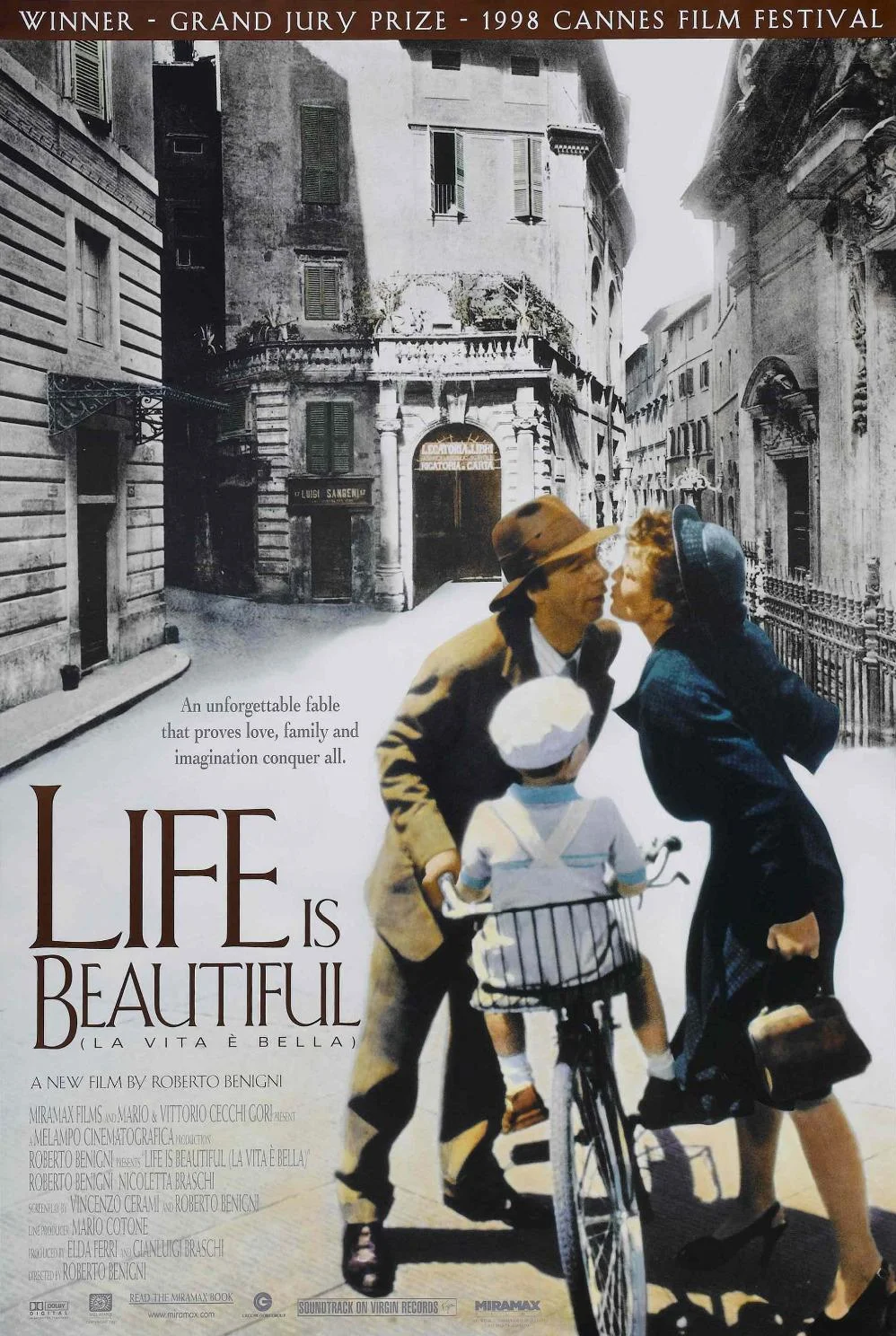 Why La vita è bella (Life Is Beautiful) is a memorable film is due to what Roberto Benigni did
during the 1999 Oscars show when he literally walked over the people who were in their seats. To make the
Holocaust a positive experience for the sake of shielding the son's eyes from the horrors in order to mitigate
the effects of the inevitable psychological trauma that'll soon follow after liberation makes it a compelling
film to watch.
Why La vita è bella (Life Is Beautiful) is a memorable film is due to what Roberto Benigni did
during the 1999 Oscars show when he literally walked over the people who were in their seats. To make the
Holocaust a positive experience for the sake of shielding the son's eyes from the horrors in order to mitigate
the effects of the inevitable psychological trauma that'll soon follow after liberation makes it a compelling
film to watch.
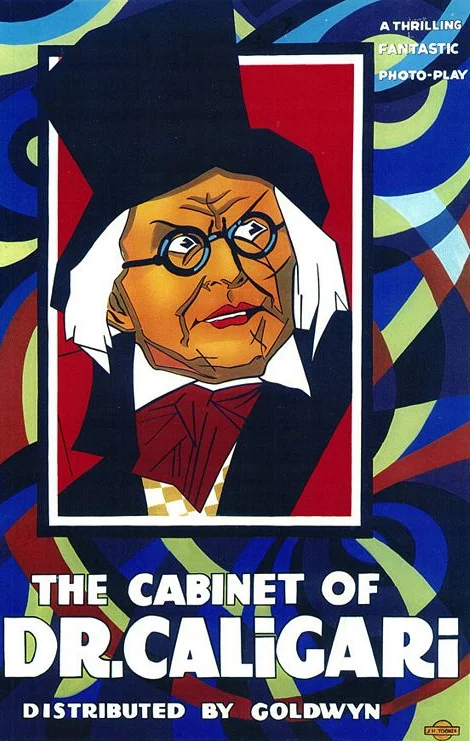 One of the best from the silent film era, Das Cabinet des Dr. Caligari, which is translated as
The Cabinet of Dr. Caligari, is the quintessential example of German Expressionism cinema. It's the
jagged shapes in the background that gives the picture a distorted, surreal look.
One of the best from the silent film era, Das Cabinet des Dr. Caligari, which is translated as
The Cabinet of Dr. Caligari, is the quintessential example of German Expressionism cinema. It's the
jagged shapes in the background that gives the picture a distorted, surreal look.
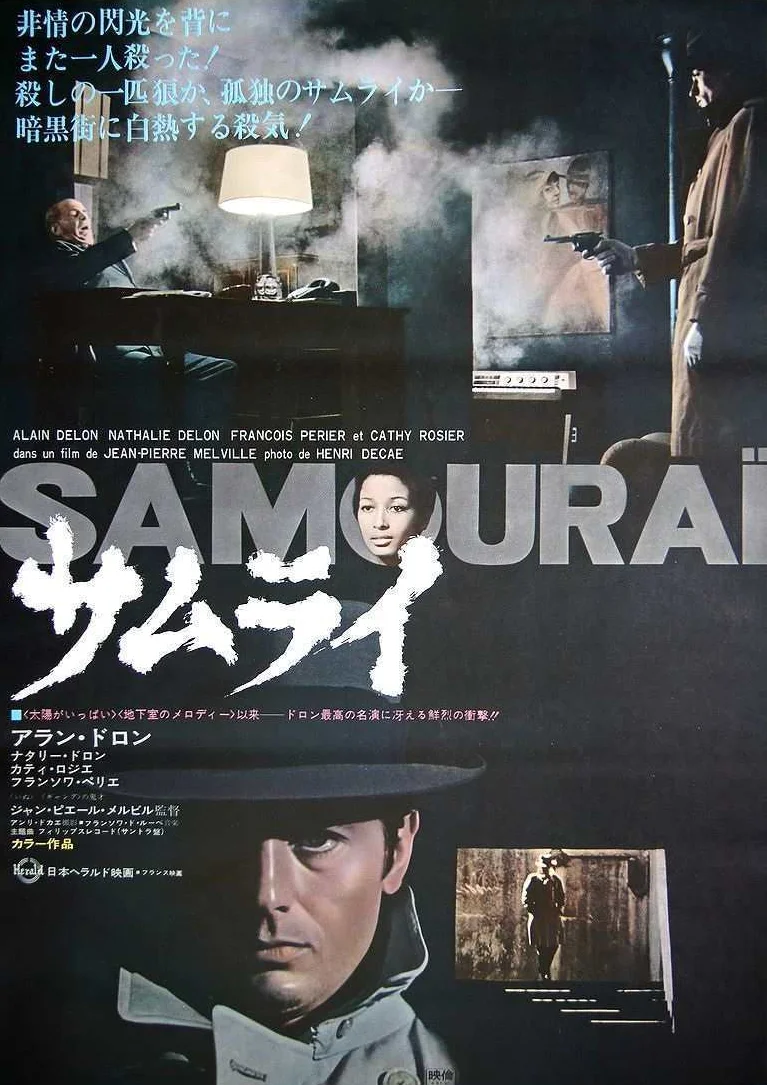 A victim of trying too hard to be the coolest and most intelligent movie ever, Le samouraï, aka
The Samurai, is a near masterpiece and a nice addition to the neo-noir genre. One thing is for
sure: the style is impeccable. Alain Delon couldn't be any happier when he was given the easiest role of his life.
He hardly does anything but look cool.
A victim of trying too hard to be the coolest and most intelligent movie ever, Le samouraï, aka
The Samurai, is a near masterpiece and a nice addition to the neo-noir genre. One thing is for
sure: the style is impeccable. Alain Delon couldn't be any happier when he was given the easiest role of his life.
He hardly does anything but look cool.
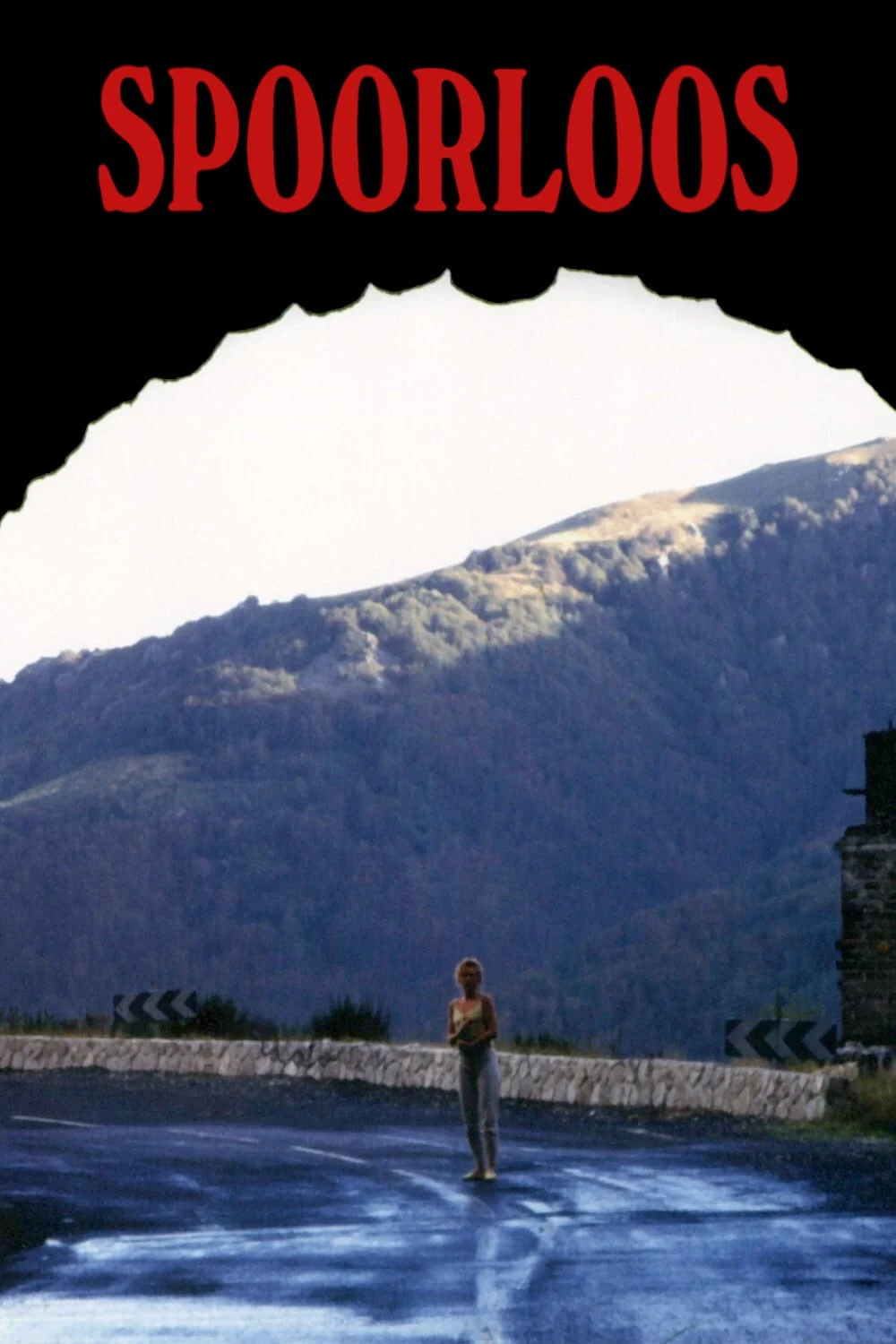 Without doubt, Spoorloos is a quintessential Hitchcockian movie. One of the most remarkable qualities
is the director's willingness to reveal the identity of a sociopathic killer from the get-go and show his
routine while taking his time to unfold the layers of how and why he has become this sort of person.
Without doubt, Spoorloos is a quintessential Hitchcockian movie. One of the most remarkable qualities
is the director's willingness to reveal the identity of a sociopathic killer from the get-go and show his
routine while taking his time to unfold the layers of how and why he has become this sort of person.
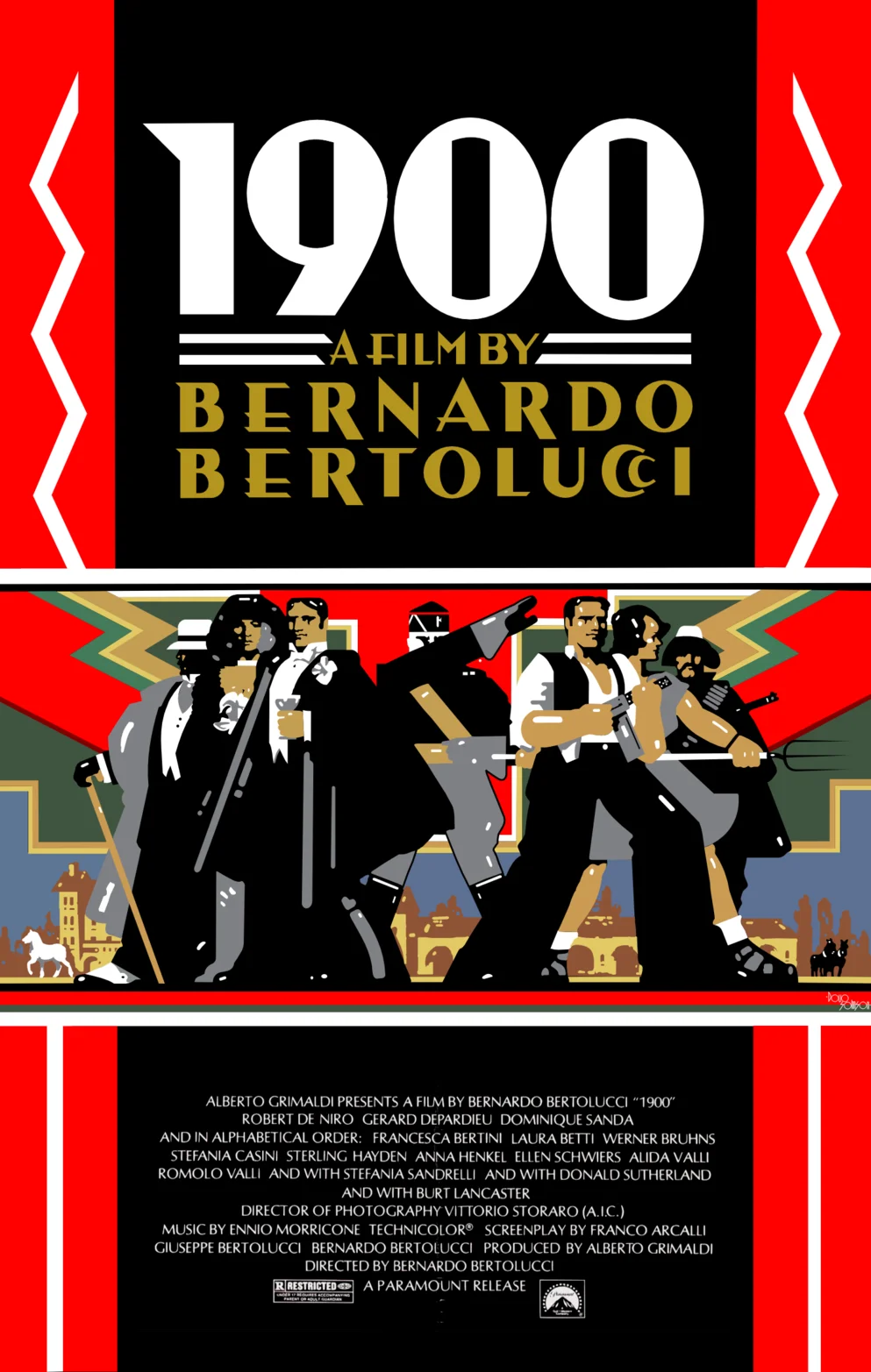 A political-driven picture, Novecento, aka 1900, is about generations of families, spanning five
decades in Italy. A near masterpiece, it's probably a difficult picture for Bernardo Bertolucci to direct because
he has to put together many aspects and achieve a balance among them while depicting the slow erosion of Italy's
culture and identity.
A political-driven picture, Novecento, aka 1900, is about generations of families, spanning five
decades in Italy. A near masterpiece, it's probably a difficult picture for Bernardo Bertolucci to direct because
he has to put together many aspects and achieve a balance among them while depicting the slow erosion of Italy's
culture and identity.
 Alberto Sordi's brilliant performance is the chief reason to see Mafioso. His character is both funny
and sad. If not for him, I seriously doubt the film would see the light of the day nowadays. His personality
reminds me of Chevy Chase's Clark Griswold.
Alberto Sordi's brilliant performance is the chief reason to see Mafioso. His character is both funny
and sad. If not for him, I seriously doubt the film would see the light of the day nowadays. His personality
reminds me of Chevy Chase's Clark Griswold.